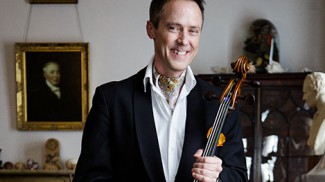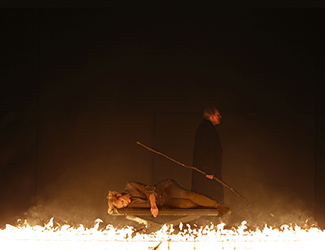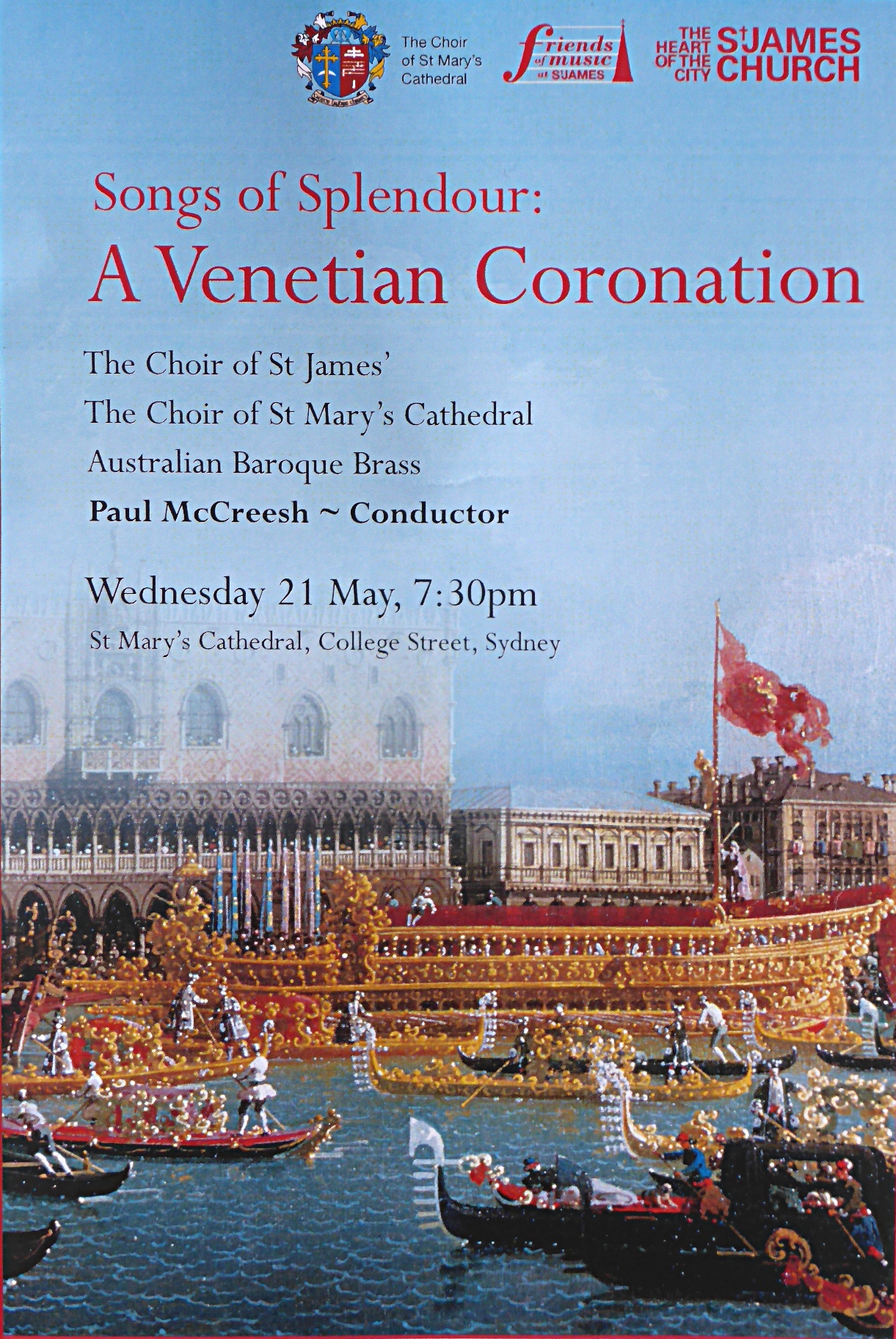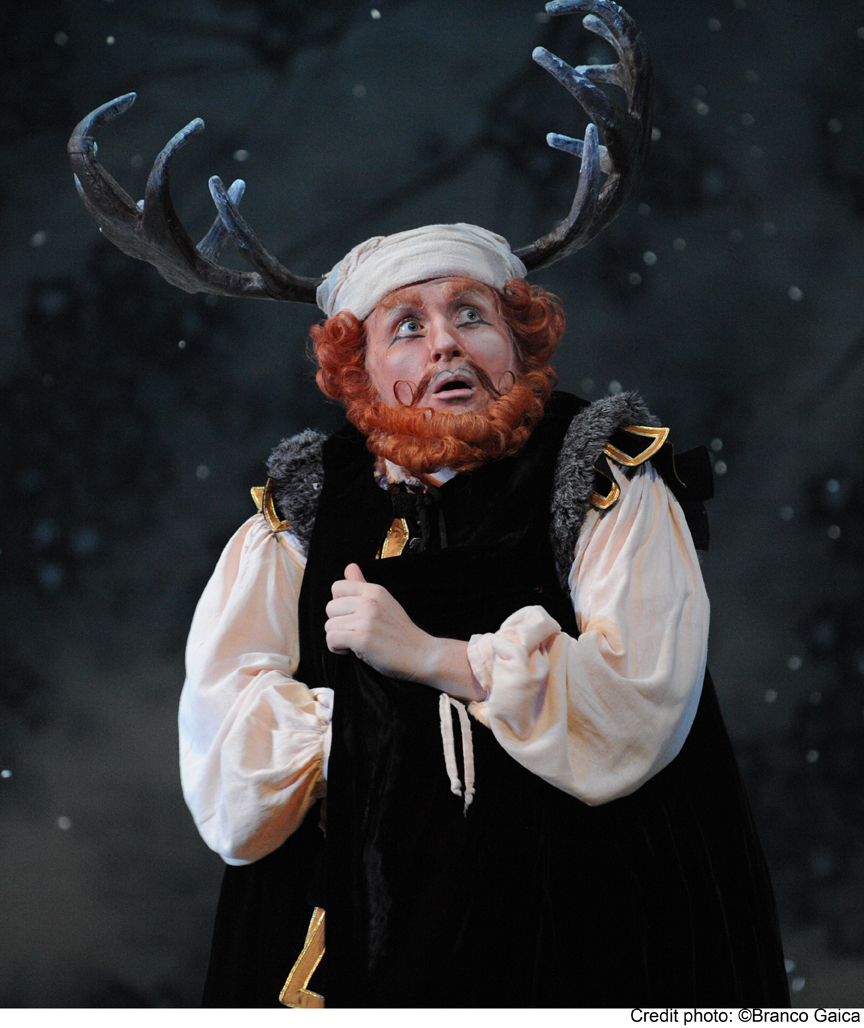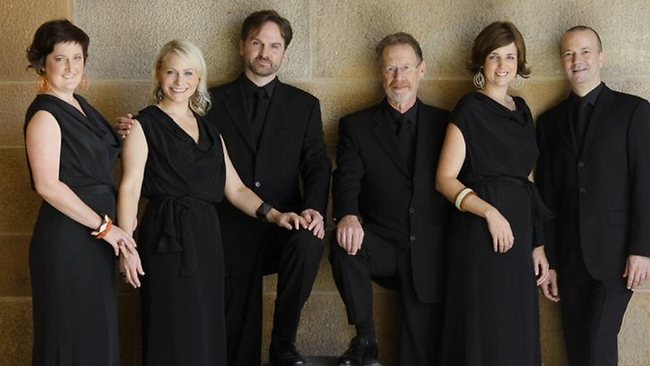A ‘Masked Ball’ – universal truths about power and survival sung with panache

Love it or loathe it, Opera Australia’s world premiere of a new production of Verdi’s opera Un ballo in maschera (A Masked Ball) has already polarised its pre-production and opening night audiences.
The presentation is well resourced and diverse in its aesthetics. Presented in association with the Sydney Festival, it has been created by Catalan theatre company La Fura dels Baus in conjunction with Teatro Colon in Buenos Aires, La Monnaie in Brussels and the Norwegian National Opera & Ballet in Oslo.
The opera’s evasion of the Neapolitan censors at its inception in 1859 is mirrored in this production, set in a fascist ‘near future’ by director Alex Olle. The players have been depersonalised, either by power or by being relegated to the margins of society. The disenfranchised have no voice apart from noiseless attempts at graffiti, claiming repression and a hopeless future. The ruling classes wear uniforms identified by numbers. Their face masks are the ultimate tool in stripping them of emotion and reducing them to the status of automatons. Ironic too that this tale of passion, jealousy and rage should be told largely devoid of facial expression, except during moments of revelation – and kudos to the singers who rely a little more on their voices and body language to convey the powerful drama in the presence of their facial restraints .
The very impressive singing cast was led by Diego Torre as Gustav, Tamar Iveri as Amelia and Jose Carbo as Ankarström. Taryn Fiebig delivered a superbly light and flippant coloratura as the comic page Oscar; basses Jud Arthur and Richard Anderson were menacing as the conspiring counts. Mariana Pentcheva was a forbidding Ulrica. Her dark contralto possessed a richness rarely heard in the Antipodes; with it went an unaccustomed vibrato. The set design by Alfons Flores, swept from despot’s bunker through fortune-teller’s lair, to ghoul infested field with minimal fuss. The graded concrete portals effectively conveyed the claustrophobic airlessness of the gathering in Ulrica’s lair and the devastating revelations of the second act, expanding to a ghostly vacuum as Amelia and Ankarström contemplate the remains of their relationship, and Gustav’s grandiose control centre and ballroom.
Perusing the biographies of the production team, it becomes evident that several of them derive from nations familiar with extremist forces. Olle, Flores and Costume Designer Lluc Castells hail from Cataluña, which itself has a history of striving for its own voice; Assistant Director Valentina Carrasco was born in Argentina, and Associate Lighting Designer Georg Veit was born in Germany.
Orwell’s 1984 is alluded to in the Director’s notes; however, the ending is more Animal Farm than 1984; more Darwinian than Biblical. The full horror of the survival of the fittest (and most ruthless) becomes evident as forgiveness and redemption take second place.
As Olle has observed, “The current economic crisis has caused the collapse of society we know it today. Power has closed in itself, in a form of a new absolutism or refunded totalitarianism, but apparently in a democratic system. The power, bureaucrats, financiers, politicians, who have survived the crisis, will live hidden from the world. Around them, like shadows, The Protester, the indignation of the world.” ( http://www.lafura.com/web/eng/)
In 2013, these sentiments perhaps reverberate more strongly in Spain than In Australia, yet the audience in opening night was most appreciative. It is a carefully considered and beautifully performed production which triggers deeper thought.
Shamistha de Soysa for SoundsLikeSydney©
You can see A Masked Ball at the Joan Sutherland Opera Theatre, Sydney Opera House on selected dates until Tuesday February 12th 2013.


